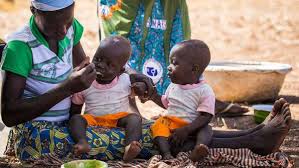A global conservation organization claims that at least five African nations are collaborating to create what may be the first-ever collective “debt-for-nature” swap in order to earn at least $2 billion to safeguard an area of the Indian Ocean that is rich in coral.
Debt-for-nature agreements are becoming more and more common as a means of financing conservation in developing countries.
Savings are put toward environmental conservation and are utilized to replace bonds or loans with less expensive debt.
These swaps have recently taken place in Ecuador, Barbados, Belize, Gabon, and Seychelles; nevertheless, the African project would be the first to involve several nations sharing a unique ecosystem.
The five African countries taking into consideration the joint exchange deal were not identified by Thomas Sberna, regional head for coastal and ocean resilience at the International Union for the Conservation of Nature (IUCN).
However, he added that Kenya, Madagascar, Mauritius, Mozambique, Seychelles, Somalia, South Africa, Tanzania, and the Comoros are among the nations that support the larger “Great Blue Wall” protection plan.
Laptops 1000The initiative, which was first unveiled in 2021 and has the support of the US and UK governments, is to safeguard and rebuild 2 million hectares of ocean habitats by 2030, helping almost 70 million residents of coastal areas.
Such audacious agreements, according to Sberna, are critical to accelerating conservation.
Participating in the discussions is Sberna. “If we really want to deliver a substantial impact in the next five years, we cannot just continue issuing them one by one,” she stated.
It is hoped that a regional agreement could overcome past difficulties in reaching agreements on matters like fishing rights and who pays for environmental measures and draw in investment.
Following a historic agreement in 2022 to safeguard 30% of the world’s seas and land by the end of the decade, securing additional funding to assist nations in protecting biodiversity is a key component of the upcoming global negotiations in Colombia in October.




















